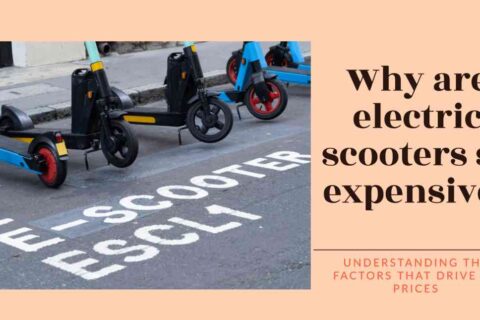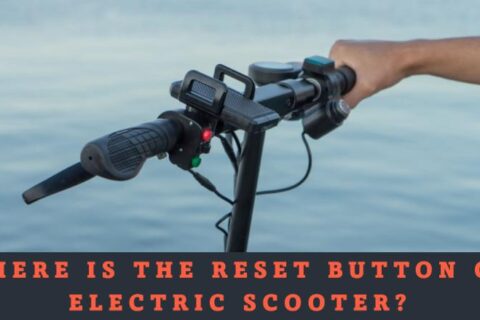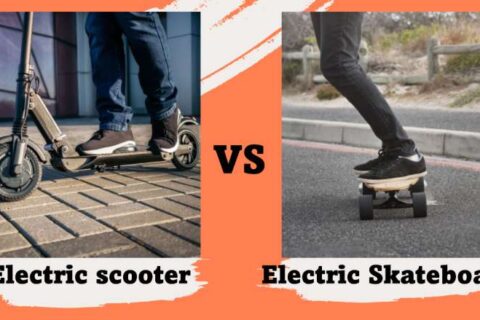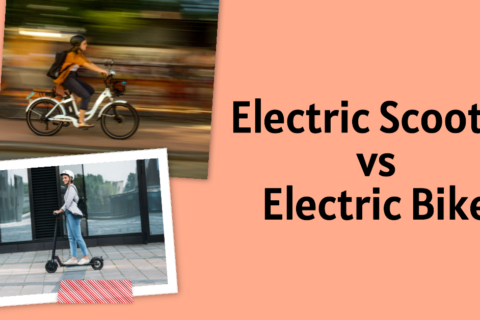Oregon Electric Scooter Laws are very necessary to get around the city of Oregon, especially in places where public transportation or parking spaces are limited.
However, electric scooter riders also need to be aware of the legal rules and regulations that apply to them in their state.
In this article, we will provide a comprehensive guide on the Oregon electric scooter laws, covering topics such as age and licensing requirements, helmet regulations, speed limits, insurance requirements, liability concerns, rental services, and recent updates and changes.

Key Takeaways on Oregon Electric Scooter Laws:
| Age and Licensing Requirements | – Minimum age to ride an electric scooter in Oregon is 16 years old. – No license or permit is required to operate an electric scooter on public roads. |
| Helmet Regulations and Safety Measures | – All electric scooter riders must wear a helmet that meets safety standards. – Bright or reflective clothing, lights, and reflectors are recommended for visibility. – Riders should avoid distractions, ride defensively, and yield to pedestrians. |
| Where Electric Scooters are Permitted to Operate | – Electric scooters are allowed on public roads, bike lanes, paths, with specific conditions. – Riding on sidewalks is prohibited, except for certain situations. |
| Speed Limits for Electric Scooters | – Maximum speed on level ground is 24 mph for electric scooters in Oregon. – Speed limits on bike lanes and paths are set at 15 mph. |
| Insurance Requirements | – Electric scooters are exempt from mandatory insurance, but riders are still liable. |
| Liability Concerns and Legal Protection | – Electric scooter riders have the same rights and responsibilities as other road users. – Riders may need legal protection if involved in an accident with others. |
| Recent Updates and Changes to Oregon Electric Scooter Laws | – House Bill 2671 and Senate Bill 395 introduced changes to regulations and speed limits. |
Table of Contents
ToggleOregon Electric Scooter Laws: Age and Licensing Requirements
One of the first things you need to know before riding an electric scooter in Oregon is the age and licensing requirements. According to the Oregon Vehicle Code, an electric scooter is defined as a device that:
- Has handlebars and a foot support or seat for the operator’s use
- Can be propelled by human power or an electric motor
- Has a maximum output of 1000 watts
- Is not capable of exceeding 24 miles per hour on level ground
AGE
According to this classification, an electric scooter is regarded as a motor-assisted scooter in Oregon, which entails that it is governed by specific laws. One of these regulations is that a rider must be at least 16 years old in Oregon in order to operate an electric scooter. This means that it is illegal for anyone under the age of 16 to use an electric scooter on a sidewalk, bike lane, or other public space. In spite of parental permission or supervision, there are no exceptions or exemptions to this rule.
License or permit
Another rule is that using an electric scooter in Oregon is not subject to any license or permission requirements. This means that using an electric scooter on a public road does not require a driver’s license, a motorcycle endorsement, or a moped licence. You must still respect the rights of other road users and obey traffic regulations and signals.
Helmet Regulations and Safety Measures for Electric Scooter Riders
All users of electric scooters must comply with the American National regulations Institute’s (ANSI) or the Snell Memorial Foundation’s regulations for bicycle helmets, as stated in the Oregon Vehicle Code.
Riders of all ages are subject to this, whether they are traveling on sidewalks, bike lanes, pathways, or public roadways. This law only deviates if the rider’s religious convictions conflict with wearing a helmet.
For riders of electric scooters, wearing a helmet is not just a wise decision but also a legal obligation. In the event of an accident or collision, a helmet can lessen the likelihood of head injuries while also shielding the rider from the sun, wind, and rain.
Where Electric Scooters are Permitted to Operate in Oregon
Where you are permitted to use an electric scooter also plays a significant role in how you can use one in Oregon. Electric scooters may, under certain circumstances, be used on sidewalks, bike lanes, walkways, and public highways, according to the Oregon Vehicle Code.
An electric scooter must have a maximum speed limit of 25 miles per hour or less in order to be used on public roadways. As a result, electric scooters are prohibited from being used on motorways, freeways, interstates, and other fast-moving routes.
Another prerequisite for using an electric scooter in bike lanes or trails is that the speed limit cannot be higher than 15 mph. This means that the speed of traffic on the bike lane or path, as well as the posted speed limit, must not be exceeded by electric scooters.
The fact that using an electric scooter on sidewalks is illegal in Oregon, with few exceptions for entering or leaving nearby property, is one of the requirements for doing so.
This means that unless they are being used to enter a driveway, parking lot, building, or another destination, electric scooters cannot be ridden on sidewalks or crosswalks.
If they are marked as bike lanes or paths, electric scooters cannot be used on these car-free areas. If the user has a disability and relies on an electric scooter as a mobility aid, this regulation is the only exception.

Speed Limits for Electric Scooters in Oregon
As mentioned earlier, electric scooters have different speed limits depending on where they are operating. However, there are also some general rules and guidelines that apply to all electric scooter riders.
Among these regulations is that the top speed of electric scooters on flat ground is 24 miles per hour. Electric scooters are no longer regarded as motor-assisted scooters if they can travel faster than 24 mph on flat terrain; instead, they are now regarded as mopeds or motorcycles, which have separate legal requirements and regulations.
The top speed an electric scooter can go at when using these facilities. An electric scooter is in violation of the law and may be subject to a fine or citation if it travels faster than 15 mph on a bike lane or path.
Insurance Requirements for Electric Scooter Riders in Oregon
The insurance regulations have an impact on how you can use an electric scooter in Oregon. Electric scooters are exempt from the insurance requirements that apply to motor vehicles, according to the Oregon Vehicle Code.
This implies that in Oregon, you are not required to have insurance for your electric scooter. This does not, however, absolve you of all financial duty or liability in the event that your electric scooter is involved in an accident or sustains damage.
The Oregon Department of Transportation claims that anyone hurt or their property damaged while using an electric scooter is still responsible for their actions. This means that you can be liable for the other party’s medical claims, repair costs, or legal fees if you cause an accident or collision with another car, a pedestrian, a cyclist, or a piece of property.
Therefore, it is advisable for electric scooter riders to consider getting some form of insurance coverage for their electric scooters, even if it is not legally required. There are different types of insurance coverage that may apply to electric scooters, such as:
- Personal injury protection (PIP): This covers the medical expenses and lost wages of the rider and their passengers in case of an accident, regardless of who is at fault.
- Liability insurance: This covers the bodily injury or property damage that the rider causes to others in case of an accident, up to the policy limits.
- Collision insurance: This covers the repair or replacement costs of the rider’s electric scooter in case of an accident, regardless of who is at fault.
- Comprehensive insurance: This covers the repair or replacement costs of the rider’s electric scooter in case of theft, vandalism, fire, or other non-collision events.
- Uninsured/underinsured motorist (UM/UIM) insurance: This covers the medical expenses and property damage of the rider and their passengers in case of an accident caused by a driver who has no insurance or insufficient insurance.

Recent Updates on Oregon Electric Scooter Laws
One of the recent updates to the Oregon electric scooter laws is House Bill 2671, which was passed by the Oregon Legislature in 2019 and took effect on January 1, 2020. House Bill 2671 made several changes to the existing laws regarding motor-assisted scooters, such as:
- Increasing the maximum output of an electric motor from 1000 watts to 1500 watts
- Increasing the maximum speed limit on bike lanes or paths from 15 mph to 20 mph
- Allowing local jurisdictions to regulate or prohibit electric scooters on sidewalks
- Allowing local jurisdictions to regulate or prohibit electric scooters on bike lanes or paths
- Allowing local jurisdictions to regulate or prohibit electric scooters on public roads with speed limits above 25 mph
- Allowing local jurisdictions to require permits or fees for electric scooters
- Allowing local jurisdictions to impose civil penalties for violations of Oregon electric scooter laws
Senate Bill 395, presented in 2021 by Senator Michael Dembrow and still pending in the Oregon Legislature, is another recent revision to the laws governing electric scooters in Oregon. Several amendments to the current regulations governing motorized scooters are suggested in Senate Bill 395, including:
- Requiring all electric scooters to have brakes
- Requiring all electric scooters to have lights
- Requiring all electric scooters to have reflectors
- Requiring all rental service providers to provide helmets and safety information to electric scooter users
- Provide insurance coverage for electric scooter users
- Collect and report data on electric scooter usage and safety
- Exempting electric scooters from the mandatory sidepath law
- Exempting electric scooters from the prohibition on sidewalks, except in downtown areas
- Allowing electric scooters to use crosswalks unless prohibited by local jurisdictions
- Allowing electric scooters to use public transit facilities, such as buses, trains, or ferries
These changes are intended to improve the safety and accessibility of electric scooters for both riders and other road users. Electric scooter riders should stay informed and updated on the status and progress of Senate Bill 395.
Conclusion
In conclusion, using an electric scooter in Oregon can be a fun and practical way to move around the city, particularly in locations with limited access to parking or public transportation.
To ride an electric scooter in Oregon, though, you must also be aware of and abide by the laws and guidelines that are relevant to you in your state.
The Oregon electric scooter laws are thoroughly covered in this article, including information on age and license requirements, helmet legislation, speed limits, insurance requirements, liability issues, rental services, and recent updates and modifications.














